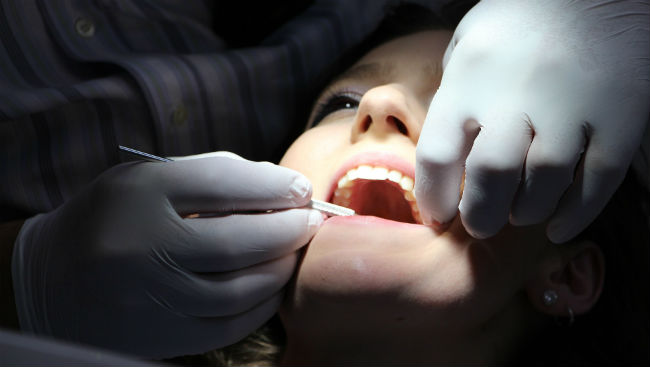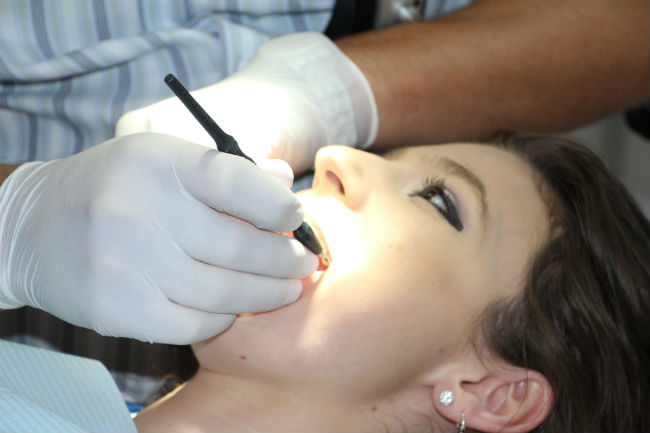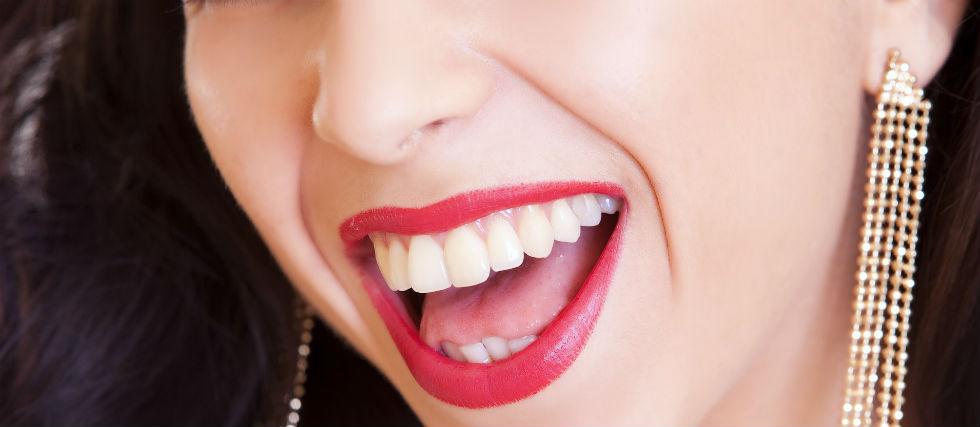National smile month kicked off earlier this week, and besides being a good excuse to spread a bit of cheer, it’s all about raising awareness of the importance of good oral health. Want to keep that perfect set of pearly whites? Then visits to the dentist will help spot early signs of any problems and help correct them before they affect your smile.
National Smile Month found that 61% of us have been attracted to someone by their smile alone, while a whopping two thirds would lose respect for a boss with bad oral hygiene. So why exactly is it that many of us pay only minimal attention to keeping our teeth in check?
An attractive smile is primarily based on good oral health, so it is important to eat a balanced diet with reduced frequency of sugar consumption, as well as brushing twice a day (in the morning and last thing at night) and visiting the dentist regularly. But good oral health is not just about keeping your gums and teeth healthy and looking their best, and this is often where most people fall short. Poor gum health has been linked with other health conditions such as heart disease, stroke, diabetes and dementia, and so it’s equally as important to ensure that you’re keeping them in good shape. A few extra minutes a day could make all the difference.

How attractive is your smile?
Is your smile the best it can be? The four most common issues with our teeth are:
- Staining
Staining is caused when the outer layer of enamel becomes discoloured, typically due to regular consumption of drinks like red wine, coffee and cola. Smoking also contributes to teeth staining, as well as a host of other oral health problems, including gum disease, tooth loss and even cancer. A yellow smile is instantly ageing, adding years to your appearance. Now is the time to stop!
How to prevent staining:
Barry Cockcroft, Non-Executive Director at mydentist and former Chief Dental Officer for England, says: “If you want a great smile that lasts, then stopping smoking would be a great start, as well as the other health benefits.”
While prevention is always better than cure, the good news is that you can whiten your stained teeth safely and effectively with a treatment from your dentist. But be aware that teeth whitening will only affect your natural teeth, so crowns or fillings will remain unchanged. If this is the case, then you may also want to have these replaced after your treatment.
- Gum problems
Missing teeth which create visible gaps towards the front of the mouth do not create a good smile
As Barry explains, “More people lose their teeth now as a result of gum disease rather than tooth decay. Gum disease is usually a slowly progressing disease, which is mostly painless and does not cause symptoms other than bleeding until the teeth become mobile.
“This is why people should continue to have regular dental checks even though they may have no tooth decay or fillings. This trend will continue as the prevalence of tooth decay in the general population decreases.”
- Tooth decay
“Cavities are caused when bacteria in the plaque on the teeth convert sugars in food into acid. To prevent this, you should reduce the amount and frequency of sugar consumption. Start looking at how much sugar foods contain; you would be surprised how much sugar some cereals, processed foods and drinks contain”, Barry explains.
It has been proved many times that fluoride reduces the prevalence of tooth decay, and all leading toothpastes contain the optimum level of fluoride. It is also present naturally in all our water, though in most areas not enough to reduce decay.
- Sensitivity
Sensitive teeth can occur at any age. Sensitivity it is caused due to the gum receding beyond where the enamel ends, exposing the sensitive dentine underneath.
Sensitivity itself is not a health problem, but it can make eating cold or hot foods uncomfortable, and can even make brushing painful. You can buy toothpastes that are specially formulated to reduce sensitivity, or your dentist can apply a varnish which can reduce it.
Sensitive teeth are not normally a health problem, but will certainly cramp your smile style when tucking into ice cream or hot coffee!

Chew sugar free gum to keep your smile young:
mydentist found that 3 out of 4 people don’t use chewing gum as part of their oral health routine, with 47% of 55-64 year-olds considering it rude.
But chewing a sugar-free gum on a regular basis can help clean our teeth to help keep that smile looking young:
- Helps to prevent dry mouth – Dry mouth occurs when a lack of saliva is being produced, which is needed to function healthily and is a particularly big problem for older people. While the flow of saliva does tend to naturally reduce with age, there are some easy ways to combat this. Chewing gum encourages the mouth to produce saliva, therefore keeping it lubricated and cleansed.
- Combats bad breath – Not just because of its minty flavour, but chewing sugar-free gum can actually help to combat bad breath. Another side effect of a reduced flow of saliva with old age is unpleasant breath, and increased saliva due to chewing gum helps to wash away the bacteria that causes it.
- Helps to prevent cavities – After we eat, acid builds up and can start to break down tooth enamel, leaving you more susceptible to cavities. Saliva contains calcium and phosphate which strengthens the enamel, and as chewing sugar-free gum helps to produce more saliva, it can help to keep your teeth strong and healthy.
- Keeps bad habits at bay – For many people trying to quit smoking, chewing sugar-free gum has proven to be useful because it replaces the motion of having a cigarette in their mouth. Not only does it keep your hands and mouth busy, but in the long term it also cuts your risk of smoking-related illness such as gum disease, tooth decay and oral cancer.
But as Barry explains: “Always remember the most important thing is good oral health. If you neglect your oral health, then there is no quick fix to make you look good”.






















